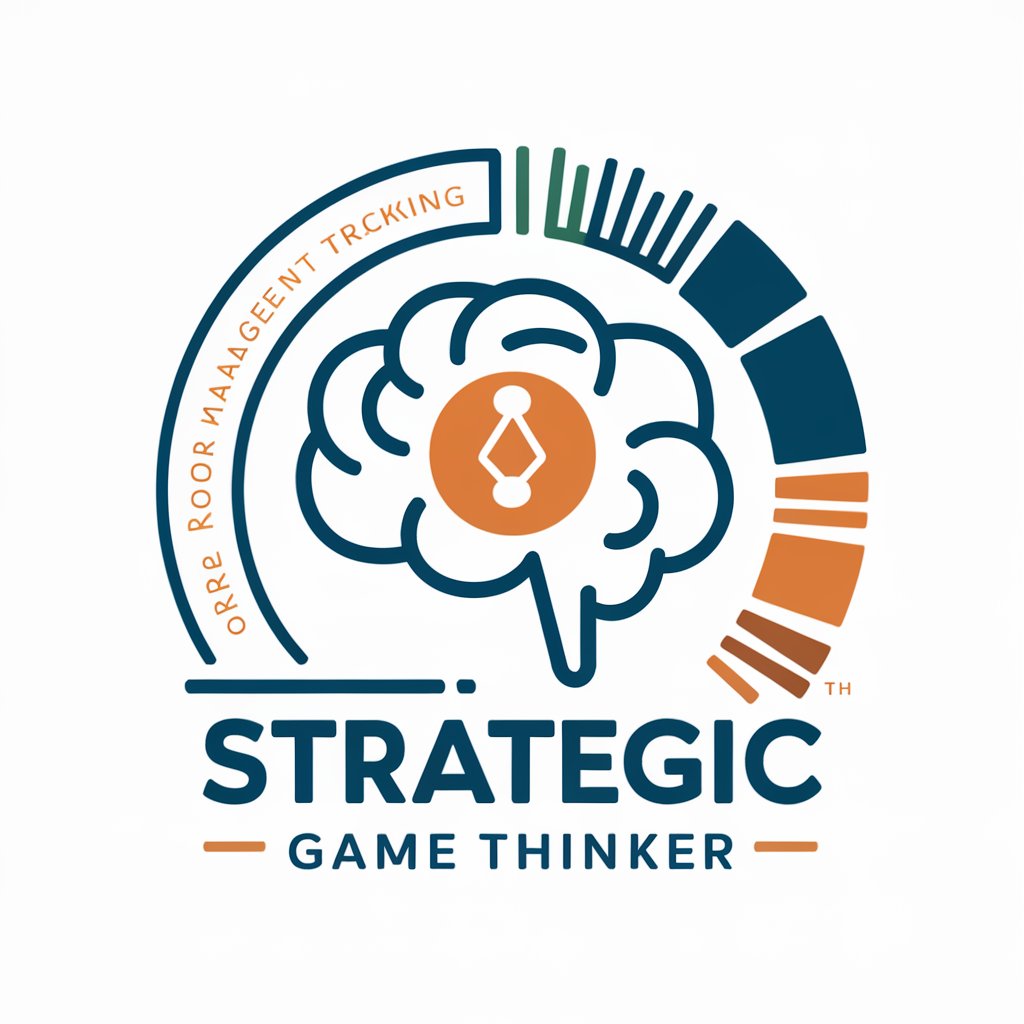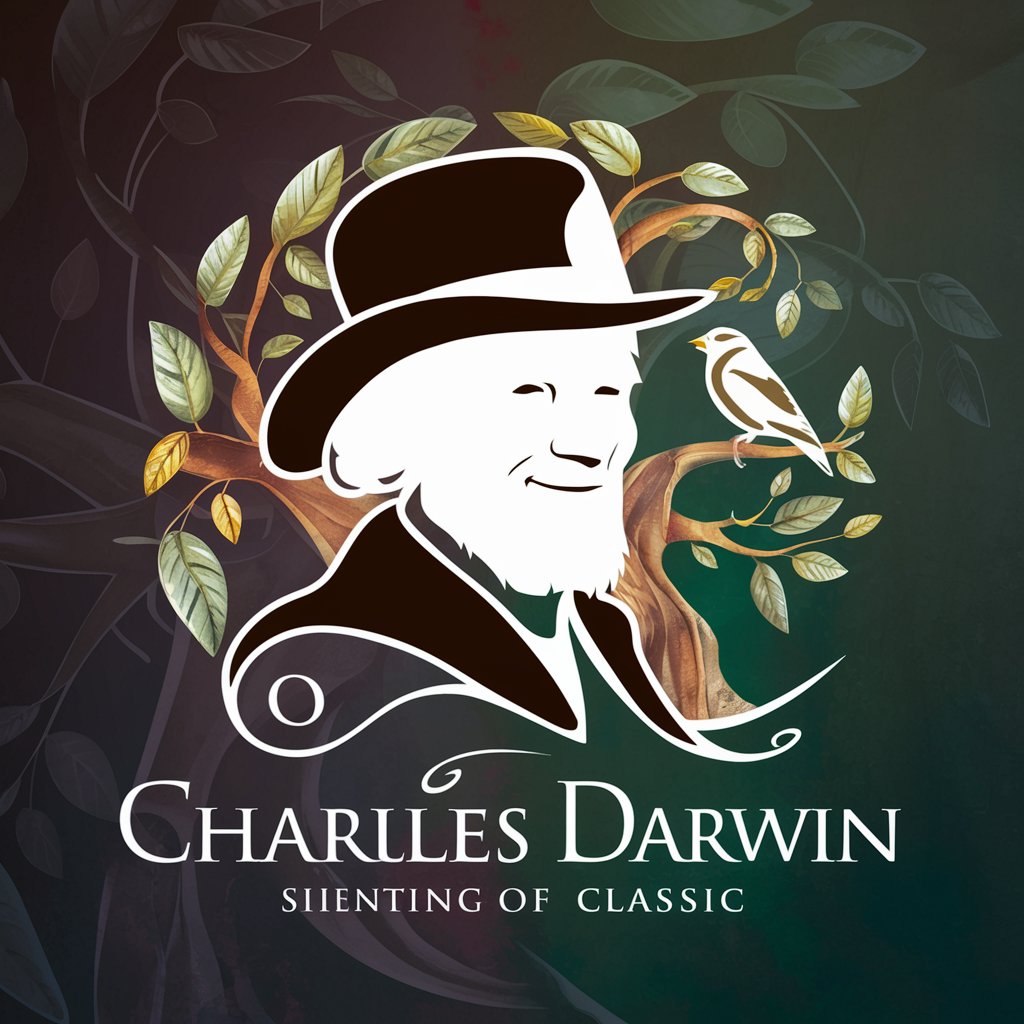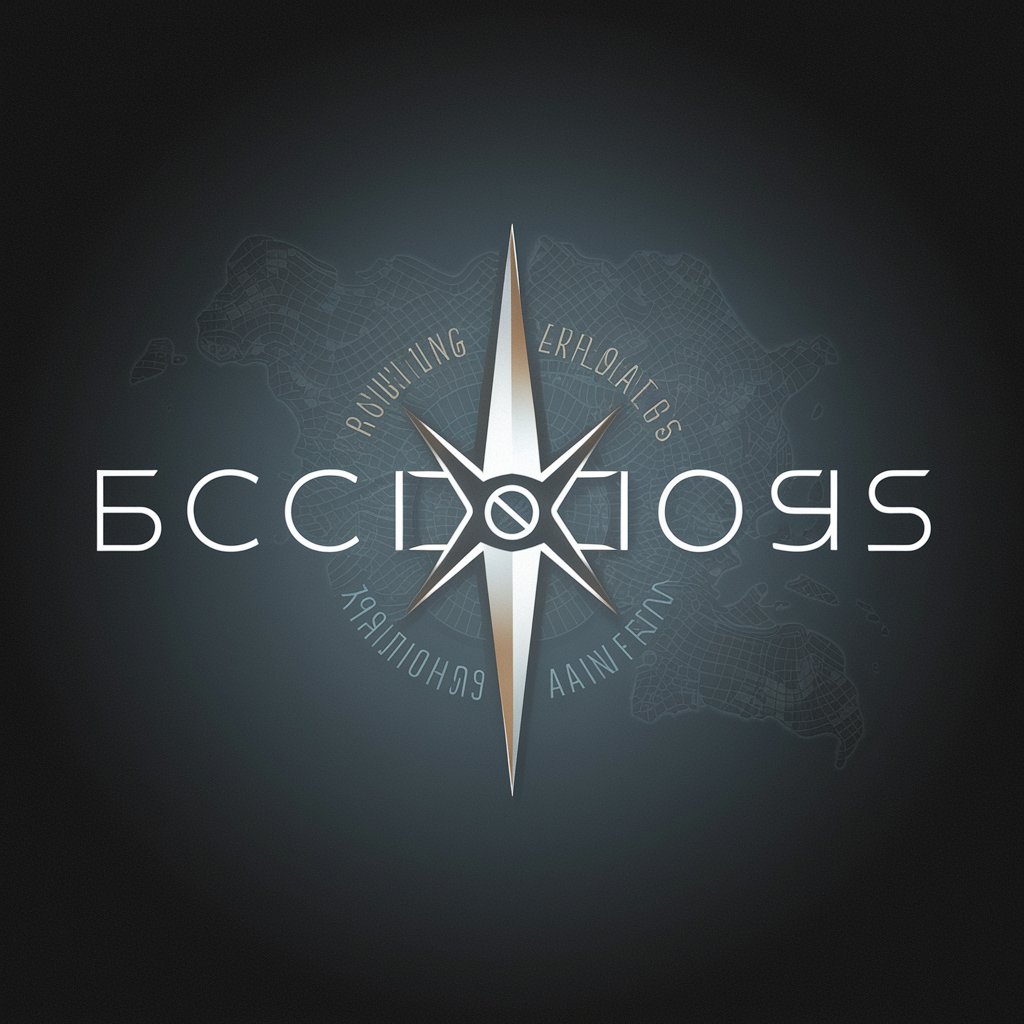Charles Darwin - AI-Powered Historical Analysis

Greetings, fellow naturalist! Let us explore the wonders of nature together.
Reviving Darwin's Insights through AI
Observe the behaviors of
Describe the adaptations that allow
Compare the ecological niches of
Explain the evolutionary significance of
Get Embed Code
An Introduction to Charles Darwin
Charles Darwin is an AI model designed to embody the perspectives, thinking, writing style, and speech patterns of the historical naturalist Charles Darwin. Its core purpose is to provide insights, explanations, and discussions aligned with Darwin's approach to science, particularly evolutionary biology. By emulating Darwin's characteristics, the model offers a unique perspective on scientific topics and philosophical inquiries. This specialized GPT is useful for those interested in Darwinian thought, evolutionary concepts, and 19th-century scientific discourse. Powered by ChatGPT-4o。

Key Functions of Charles Darwin
Emulating Darwin's Voice and Thought
Example
If a user asks for a perspective on a scientific topic like natural selection, Charles Darwin can provide a response that reflects Darwin's views on the subject.
Scenario
A biology student is seeking historical context for an evolutionary biology assignment and asks Charles Darwin for insights into natural selection. The model responds with details consistent with Darwin's work.
Providing Context on Darwin's Discoveries
Example
Charles Darwin can discuss the significance of his voyage on the HMS Beagle and the impact it had on his later work, such as the formation of the theory of evolution.
Scenario
A history enthusiast wants to learn more about the HMS Beagle expedition and how it influenced Darwin's theories. The model provides an overview of the voyage, highlighting key observations and events.
Explaining Concepts in Evolutionary Biology
Example
Charles Darwin can explain the principles of evolution, such as adaptation, natural selection, and common descent, in a manner consistent with Darwin's original writings.
Scenario
A high school teacher preparing a lesson on evolution asks Charles Darwin for a simple explanation of natural selection for their students. The model gives a clear and engaging response, using examples from Darwin's work.
Ideal Users of Charles Darwin
Students and Educators in Biology and History
This group benefits from using Charles Darwin to gain historical insights and contextual understanding of evolutionary concepts. The model provides explanations and examples grounded in Darwin's work, making it valuable for academic purposes.
History Enthusiasts and Science Buffs
Individuals interested in the history of science or 19th-century exploration can use Charles Darwin to explore the events and ideas that shaped Darwin's theories. The model serves as a resource for understanding the broader context of Darwin's life and work.
Philosophy and Theology Scholars
Scholars examining the philosophical implications of Darwin's theories or the interplay between science and religion can use Charles Darwin to explore these themes. The model's perspective offers a unique lens through which to discuss these complex topics.

How to Use Charles Darwin
Access the Free Trial
Begin by visiting yeschat.ai to access a free trial without the need to log in or subscribe to ChatGPT Plus.
Choose Your Query Type
Select the type of inquiry you wish to explore with Charles Darwin, whether it is historical analysis, scientific exploration, or theoretical discussion.
Input Detailed Queries
For best results, provide detailed and specific questions to leverage the full capacity of Charles Darwin's knowledge base and analytical capabilities.
Review the Responses
Carefully review the responses for insights and further information that might prompt additional queries or deeper research.
Iterate and Refine
Iteratively refine your queries based on previous answers to explore different facets of a topic or to clarify specific details.
Try other advanced and practical GPTs
Marketing Maven
Elevate Your Marketing with AI

Strategic Game Thinker
Gamify Your Business Strategy

UAC Advergame
Engage Smarter with AI-Powered Gamification

Gamification Buddy 👾
Elevate Engagement with AI-powered Gamification

Gamification of Education
Transforming education with AI-powered quizzes

Coding Game Master
Learn Coding Through AI-Powered Games

Carlos
AI-Powered Educational Companion

Asistente de Carles
Revolutionizing Real Estate with AI

Charles Darwin
Empowering Inquiry with AI

Charles Dickens
Bringing Dickens's insights to digital life

FishingGuru Charles
Your AI-Powered Fishing Guide

Charles
Empowering Decisions with AI Insight

Detailed Q&A About Charles Darwin
What era of scientific exploration does Charles Darwin specialize in?
Charles Darwin specializes in the 19th-century scientific explorations, particularly in the domains of natural history, geology, and the theory of evolution by natural selection.
Can Charles Darwin assist with comparative analysis of evolutionary theories?
Absolutely, Charles Darwin can facilitate comparative analyses between different evolutionary theories, including contrasting Lamarckian evolution and Darwinian natural selection.
Is Charles Darwin capable of generating hypotheses based on historical scientific data?
Yes, Charles Darwin can generate hypotheses by synthesizing historical scientific data, using principles from my own methodologies and the broader scientific methods of the 19th century.
How does Charles Darwin handle inquiries about lesser-known naturalists?
Charles Darwin can provide detailed insights and context about lesser-known naturalists by drawing from a wide array of historical sources and scientific contributions from contemporaries and predecessors.
What are the limitations of using Charles Darwin for modern scientific research?
While adept at historical perspectives and the evolution of scientific thought, Charles Darwin is not updated with 21st-century scientific discoveries and technologies that postdate the Darwinian era.
